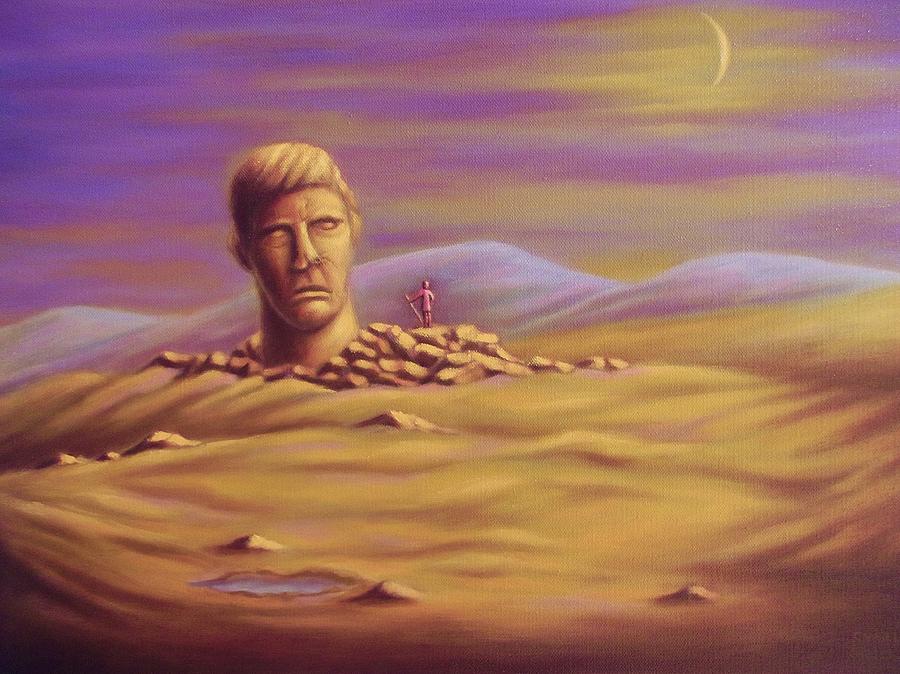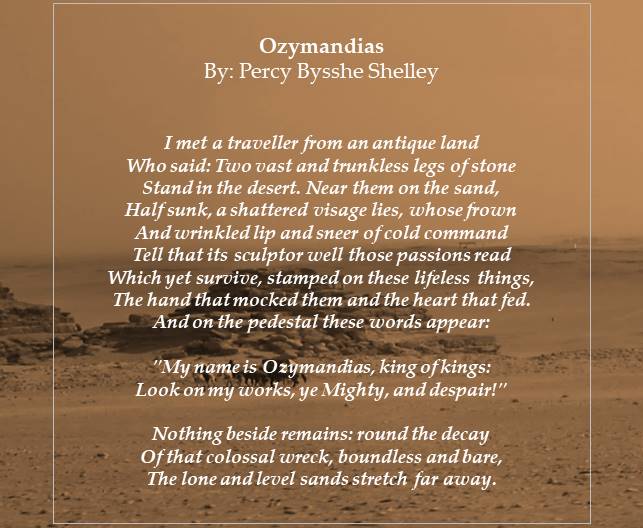

He thought he could defeat death by making his own monument lasting beyond death. It also draws attention to the irony of King Ozymandias' hubris. It contends that all we achieve in life-wealth, fame, and power-is fleeting and subject to bigger forces. Ozymandias is a poem on the transience of life. There are no signs of destruction anywhere near where these stones are found, which means that they are old when you consider the surrounding area has been heavily damaged by wind and water over time. But despite his efforts, all that remains of him now are some small stones with words written on them. He wanted to be remembered forever, so he built three great statues, each one larger than the last. After his death, these same methods were used by his enemies against him. He invented new techniques of warfare and convinced the king to adopt them into his army. Ozymandias was not just any ordinary general, but one of the greatest military minds of all time. It is on display in London at the British Museum.

His body was taken back to Greece for burial, but only his skull remains today. and took control of Asia Minor, but he died soon after, in bactrian camels, while returning home from the battlefield. He defeated King Darius III at the Battle of Gaugamela in 331 B.C. Ozymandias was one of Alexander the Great's generals. The story's irony is Ozymandias' determination on being an eternal force, only to watch his monuments disintegrate among the sands of time.

The fundamental topic of "Ozymandias" might be humanity's brief life cycle and the desire to leave a lasting impression. What is the central theme of Ozymandias? And is there any irony in the poem? Even though he was a king, he was not immortal like gods so his great power came with a limit time. Nothing remains of Ozymandias except for some stones which were once covered in gold. His body was buried near Cairo in a royal tomb but after thousands of years his body was removed from the crypt and taken to London where it now lies in an unmarked pauper's grave. Ozymandias was a king of ancient Egypt who built a famous statue of himself but who later found out that he was dead. The weak wind languidly shook the green trees, As they murmured in a melancholy tone, "Ozymandias, loveliest of living poets!" O'er his quiet grave the olive spread its broad leaves, And the soft moss grew thick between the stones. Here was one whose name was like a spell to make the spirit grow faint Yet all their mighty host had failed before him! This quotation perfectly sums up these lines from Shelley's poem. They come with time limits, just like the lives of those who possess them. The easiest way to explain the idea of the poem "Ozymandias" is to say that power and greatness do not stay forever.


 0 kommentar(er)
0 kommentar(er)
